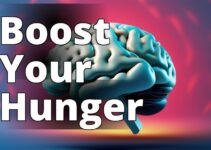In recent years, the use of cannabidiol (CBD) has gained significant attention in the world of health and fitness. This non-psychoactive compound derived from cannabis plants is known for its potential therapeutic benefits, including its potential role in enhancing muscle recovery. This article will delve into the science behind using CBD for muscle recovery and discuss how incorporating it into your fitness routine may help improve overall athletic performance.
A Natural Approach to Pain Relief and Inflammation Reduction
Cannabidiol is praised for its natural pain-relieving properties and its ability to reduce inflammation, making it an ideal supplement for those experiencing muscle soreness after intense workouts. When our muscles are pushed to their limits during exercise, microscopic tears occur, leading to inflammation and delayed onset muscle soreness (DOMS). This is a normal part of the muscle recovery process, but it can be uncomfortable and hinder performance in subsequent workouts.
How Does CBD Work?
One way that CBD may aid in muscle recovery is by interacting with the body's endocannabinoid system (ECS). The ECS plays a crucial role in regulating various physiological processes, including pain perception, inflammation, and immune response. CBD interacts with ECS receptors, helping to modulate these processes and potentially reducing pain and inflammation associated with muscle recovery.
The Entourage Effect
Some research suggests that full-spectrum CBD products, which contain multiple cannabinoids and terpenes found in cannabis plants, could provide even more significant benefits for muscle recovery. This is due to the “entourage effect” – the synergistic interaction between various cannabis compounds that enhances their individual effects. By using a full-spectrum product, you may experience enhanced pain relief and inflammation reduction, further promoting muscle recovery.
Improving Sleep Quality for Optimal Recovery
Another benefit of incorporating CBD into your fitness routine is its potential to improve sleep quality, which is essential for optimal muscle recovery. During sleep, our bodies undergo various restorative processes, including the release of growth hormones that aid in muscle repair and rebuilding. However, many athletes struggle with achieving adequate sleep due to factors such as stress, anxiety, and post-workout discomfort.
CBD has been shown to have anxiolytic (anxiety-reducing) and sedative effects, making it a natural solution for those looking to improve their sleep quality. By helping you achieve deeper, more restful sleep, CBD can support your body's natural repair processes and enhance overall muscle recovery.
Reducing Muscle Spasms and Cramps
Muscle spasms and cramps can be painful and debilitating, significantly impacting athletic performance and overall comfort. Research has linked CBD's ability to reduce muscle spasms and cramps to its interaction with the ECS, which helps regulate muscle control and contraction.
By using CBD to manage muscle spasms and cramps, athletes may experience increased comfort during workouts and faster recovery times. This can lead to improved performance, better results, and a more enjoyable exercise experience.
Choosing the Right CBD Product for Muscle Recovery
With the growing popularity of CBD, there are now countless products available on the market catering to various needs and preferences. When selecting a CBD product for muscle recovery, consider the following factors:
- Type of CBD: Full-spectrum products contain multiple cannabinoids and terpenes and may provide enhanced benefits due to the entourage effect. However, if you prefer to avoid even trace amounts of THC, opt for a broad-spectrum or isolate product.
- Delivery method: CBD products come in various forms, including oils, capsules, topicals, and edibles. Choose a delivery method that best suits your needs and lifestyle – for example, topicals may be ideal for targeted relief of sore muscles, while oils or capsules provide a more systemic effect.
- Dosage: The optimal dosage of CBD varies between individuals and depends on factors such as body weight, metabolism, and the severity of symptoms. It's best to start with a low dose and gradually increase until you achieve the desired effects.
- Quality and purity: Look for products from reputable companies that use third-party lab testing to ensure their products are free from contaminants and accurately labeled for CBD content.
As with any supplement, it's essential to consult with a healthcare professional before incorporating CBD into your fitness routine, especially if you have pre-existing medical conditions or are taking medications.
A Healthy Addition to Your Muscle Recovery Toolkit
Given its potential pain-relieving, anti-inflammatory, and sleep-enhancing properties, cannabidiol can be a valuable addition to your muscle recovery toolkit. By supporting your body's natural healing processes, you can potentially improve performance, prevent injury, and make the most of your workouts. With some research and trial and error, you can find the right CBD product and regimen to help optimize your muscle recovery and boost your athletic endeavors.





